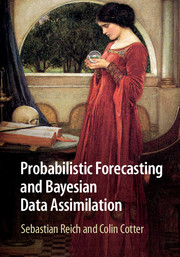Preface
Published online by Cambridge University Press: 05 May 2015
Summary
Classical mechanics is built upon the concept of determinism. Determinism means that knowledge of the current state of a mechanical system completely determines its future (as well as its past). During the nineteenth century, determinism became a guiding principle for advancing our understanding of natural phenomena, from empirical evidence to first principles and natural laws. In order to formalise the concept of determinism, the French mathematician Pierre Simon Laplace postulated an intellect now referred to as Laplace's demon:
We may regard the present state of the universe as the effect of its past and the cause of its future. An intellect which at a certain moment would know all forces that set nature in motion, and all positions of all its items of which nature is composed, if this intellect were also vast enough to submit these data to analysis, it would embrace in a single formula the movements of the greatest bodies of the universe and those of the tiniest atoms; for such an intellect nothing would be uncertain and the future just like the past would be present before its eyes.
Laplace's demon has three properties: (i) exact knowledge of the laws of nature; (ii) complete knowledge of the state of the universe at a particular point in time (of course, Laplace was writing in the days before knowledge of quantum mechanics and relativity); and (iii) the ability to solve any form of mathematical equation exactly. Except for extremely rare cases, none of these three conditions is met in practice. First, mathematical models generally provide a much simplified representation of nature. In the words of the statistician George Box: “All models are wrong, some are useful”. Second, reality can only be assessed through measurements which are prone to measurement errors and which can only provide a very limited representation of the current state of nature. Third, most mathematical models cannot be solved analytically; we need to approximate them and then implement their solution on a computer, leading to further errors.
- Type
- Chapter
- Information
- Probabilistic Forecasting and Bayesian Data Assimilation , pp. vii - xPublisher: Cambridge University PressPrint publication year: 2015



